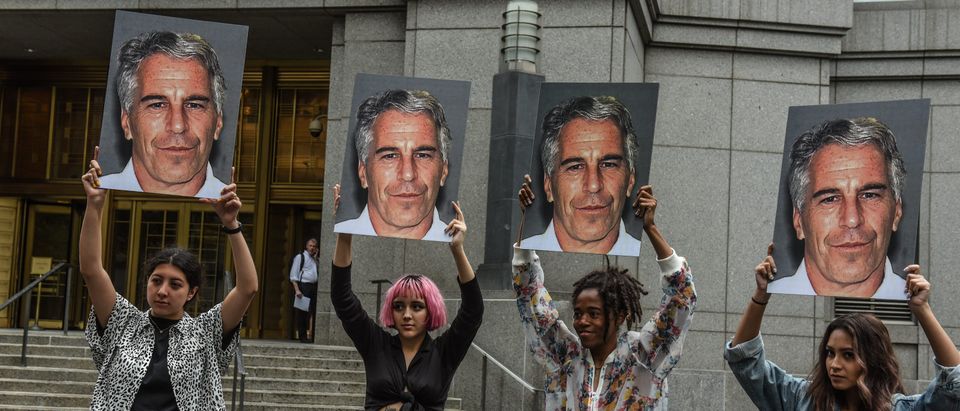Thanks to the trio of “Taken” films and the countless hours spent by thousands of anti-trafficking organizations across the U.S. to raise awareness about human trafficking over the past 15 years, few Americans remain unaware that human trafficking exists. Millions of people’s eyes have been opened to the fact that humans are being bought and sold for sex every single day.
But despite this increased awareness, human trafficking continues to rise. The United Nation’s annual Global Report on Trafficking in Persons found that the number of detected instances of human trafficking had soared to a record high. The pattern held true in the United States as well: In 2017, the National Human Trafficking Hotline and the BeFree text line saw a 13 percent growth in the number of reported cases.
We can attribute this increase to any number of factors — but lack of awareness is not one of them. If awareness were the only barrier to solving human trafficking, we would have seen major advancements in the ten years since the first “Taken” film was released. But we haven’t, and the illegal trade of innocent women, men, girls and boys for sex grows with each passing day.
This is not to say that awareness isn’t necessary. At the U.S. Institute Against Human Trafficking (USIAHT), our team has led several awareness campaigns and spends a considerable portion of our time sharing what we do with audiences across the country. The biggest challenge isn’t convincing people that trafficking exists or that it is wrong; it’s convincing them that it happens in their own backyard, and helping them to do something about it.
For example, a Southern Illinois University study found that, of 1,000 voters registered to vote in Illinois, 51 percent didn’t think that trafficking impacted their community, and 21 percent said they didn’t know or didn’t answer. But since 2007, there have been 4,578 calls to the National Human Trafficking Hotline that reference Illinois.
The simple truth is this: Sex trafficking won’t be stopped by awareness campaigns. It is action that will put an end to it. Only when we as a society — from federal representatives to pastors and parents to ordinary citizens — actively seek to end the sex trafficking that occurs in our midst will we begin to see change.
Once Americans realize that trafficking happens not just in big cities or regions other than their own, they will realize that they must take action if they want to see it end. It’s worthwhile to send out a few tweets or read some articles online. But it’s harder to invest precious time and energy advocating for those whose voices have been silenced.
The good news is that, while speaking up is hard, it is far from impossible. USIAHT and other organizations like ours exist to help those who want to see the end of human trafficking actively work toward that goal. If that describes you, here are some simple ways you can fight trafficking in your local community:
Study the signs and prep your phone. Human trafficking occurs all around us — even in the most outwardly respectable neighborhoods and among the most outwardly respectable people. By taking advantage of the many educational resources available from government and NGOs, you’ll be able to spot trafficking situations at your local bus stop, a nearby hotel or the next sporting event you attend.
Spotting a trafficking situation, however, won’t make much of a difference by itself — but making a call to the experts will. By knowing the phone number for your local police department or adding the National Trafficking Hotline’s number to your phone, you’ll be one step closer to making a call when you see a suspicious-looking interaction or individual. There’s no denying that it will be an uncomfortable conversation — but your small sacrifice of discomfort could save a life.
Get involved in your local anti-trafficking initiatives. Many counties and cities have some kind of anti-human trafficking program, whether it’s an initiative started by a local religious organization or nonprofit, or organized by local government officials. Reach out to them and see what the unique needs and problems are in your community and find out if you can help.
If, however, your community doesn’t have an initiative of this kind, it’s never too late to start one. USIAHT helps concerned individuals transform their community through its TraffickingFree Zone program, which helps bring together local stakeholders to reduce trafficking on the county level.
Reach out to your representative. While the current administration has prioritized combating human trafficking, the fight is far from over. Contact your representatives — federal, state and local — and let them know that this issue matters to you and that you’re watching how they vote.
Do they go after the source of the demand — the buyers themselves? Have they voted in favor of funding so law enforcement can train to identify and intervene in trafficking situations? Do they perpetuate the myth that trafficking is only a problem at the border, rather than the truth that it plagues the entire country?
Only by creating a legal ecosystem that combats demand and assists the survivors can we hope to see an end to modern-day slavery.
Geoffrey Rogers is the CEO and co-founder of the U.S. Institute Against Human Trafficking (USIAHT), a nonprofit, faith-based organization committed to ending human trafficking in America. Geoff is also a former vice president of IBM.
The views and opinions expressed in this commentary are those of the author and do not reflect the official position of The Daily Caller.



